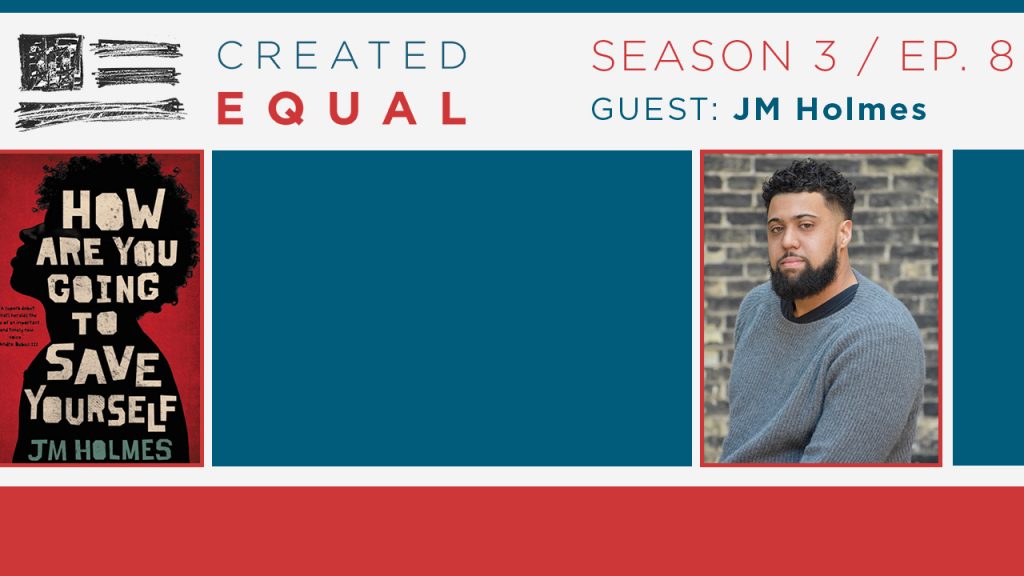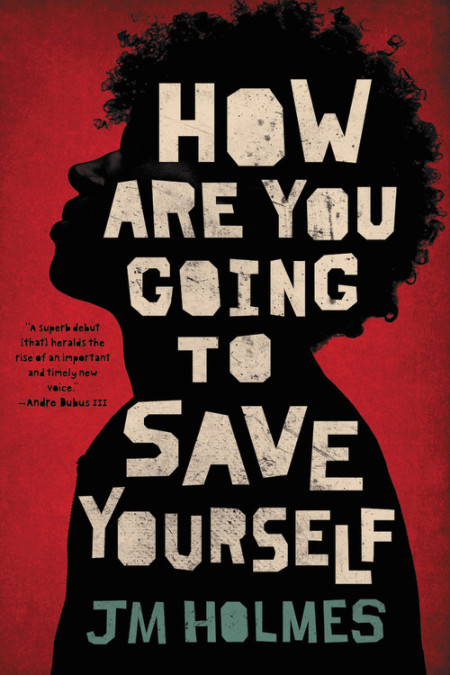JM Holmes On the Role of Creativity on Social Justice Movements
JM Holmes is the author of the short story collection “How Are You Going to Save Yourself.”

Season Three of the podcast Created Equal explores “Writers on Race: From Ralph Ellison to Colson Whitehead,” and features some of the most important voices in literature as well as the national conversation on racial inequities.
The conversations were conducted on the radio program, Detroit Today, in the WDET studios on Wayne State University’s campus throughout the pandemic and civil unrest of 2020. Each episode consists of a conversation between Henderson and one writer exploring the role of their work in the conversation about race in America.
Subscribe to the Podcast
Apple Podcast – Spotify – Google Podcast – NPR One

Episode 8 Guest: JM Holmes
JM Holmes, is the author of the story collection “How Are You Going to Save Yourself” and recipient of the Burnett Howe prize for fiction at Amherst College, the Henfield prize for literature, and a Pushcart prize.
Discussion Points:
How attention to the Black Lives Matter movement has shifted:
“My first real experience with it in terms of societal experience was Trayvon Martin and then Michael Brown and the rise of BLM then. A lot of people, white people especially, didn’t take notice of it then in 2014-2015. I think this time around, there’s been a much different reaction and for me, anyway, it seems like it could be a much more positive reaction, but I’m weary to say that just yet because I know how things tend to go in this country when social justice changes arrive.”
The role of creatives in social justice movements:
“For creatives, (social justice) is never gone for us. That’s the odd thing. When you’re working on a collection or a novel or, I’m sure, for visual artists — whatever medium you’re working in, it’s a lot of time committed to something and it spans the blowing and changing winds of social justice… I went from getting no phone calls for four months to my phone doesn’t stop ringing now. I’m glad that this conversation is starting to be on the forefront of a lot of Americans’ minds, but I think for creatives, we don’t get too caught up in the specific moment because for us it’s something we live with and explore and work with or work against for a lot of our careers and that’s just what you need to do to do the work.”
On the renewed interest in narratives reflecting the Black American experience:
“This is a moment and a stretch of time where Black American writers, our work is being reexamined and taken seriously again. But I would say that for a general white audience, they don’t like to go here very often, so when we have their attention, we want to say all that we can in that moment. I wish it wasn’t that way, but that’s the way I feel as a writer and in my short career so far. I feel their racial attention span is short and so when we have these large cultural moments or flare-ups, or when we have brutal news focus, we have to use our time wisely… The conversation for us, it never stops.
Created Equal Season 3 is supported by the Michigan School of Psychology

Trusted, accurate, up-to-date
WDET is here to keep you informed on essential information, news and resources related to COVID-19.
This is a stressful, insecure time for many. So it’s more important than ever for you, our listeners and readers, who are able to donate to keep supporting WDET’s mission. Please make a gift today.
